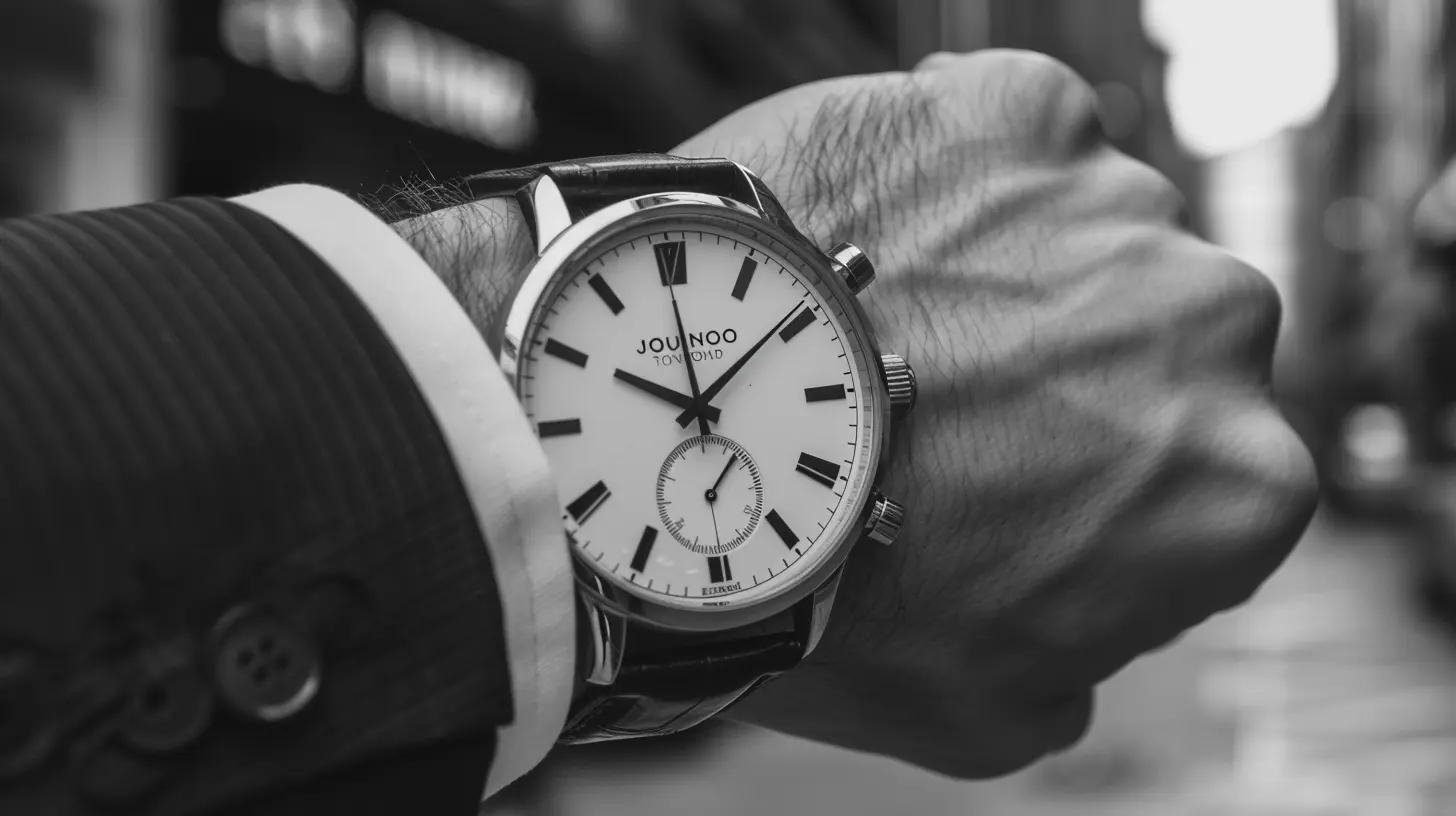The Art of Saying No: Protecting Your Time and Focus
9 August 2025
It’s just a small favor, right? Won’t take much of your time. You’re the go-to person, the reliable one, the helper. So you say yes—again. And again. Until one day you realize: your schedule is packed, your to-do list is endless, and you're drowning in commitments that don’t even move your needle forward.
Let’s be honest: saying "no" is a lot harder than it sounds. It feels awkward. Sometimes, it even feels wrong. But learning how to say no—without guilt or burning bridges—is one of the most powerful skills you can develop to protect your time, energy, and focus.
In a world that constantly demands more of us, "no" isn't negative. It's a superpower.
Why We Struggle to Say No
Think back to the last time you said “yes” when you really wanted to say “no.” Why did you do it?Maybe you feared disappointing someone. Or you didn’t want to seem rude, unhelpful, or selfish. Perhaps you’re a people-pleaser (yep, guilty as charged). Let's get real: many of us are raised to value politeness over boundaries.
But here’s the uncomfortable truth—it’s costing us. Every unnecessary "yes" chips away at your time, your mental space, and your ability to focus on what truly matters.
Saying "no" isn't about shutting people out. It's about making room for the people and projects that actually fuel your goals and bring you joy.
The Real Cost of Saying Yes to Everything
Let’s break it down. When you say yes to everything, you’re essentially handing out pieces of your focus—your most precious resource—like free samples at a grocery store.1. Burnout Becomes Inevitable
Overcommitting leads to exhaustion. And not just the physical kind—you start feeling emotionally drained, creatively dried up, and mentally foggy.2. Lack of Progress on Your Own Goals
If your time is always spent helping others fulfill their goals, guess whose goals get sidelined? Yep. Yours. Your dreams deserve your attention, too.3. Compromised Work Quality
Spreading yourself too thin might mean you get things done, but is it your best work? Unlikely. Quality takes time and concentration.Imagine your attention span as a flashlight. The more you spread it around, the dimmer it gets. But focus that beam? Now you’re unstoppable.
The Power of No
“No” is more than just a word—it’s a boundary, a filter, a focusing tool. When used wisely, it creates space for clarity, creativity, and calm.Every time you say "no" to something that doesn't align with your purpose, you're saying "yes" to your priorities. And that, my friend, is how progress is made.
Still worried about seeming inconsiderate? Here's a cozy little truth: saying “no” to others often means saying “yes” to yourself. That isn’t selfish. That’s self-respect.
When You Should Say No (And Not Feel Bad About It)
Let’s lay out some signs it’s time to flex that “no” muscle:- The request doesn’t fit your values or priorities
- You’re already overwhelmed or overstretched
- It’s a recurring favor that’s becoming a burden
- The time commitment isn’t worth the benefit
- You feel resentment creeping in every time you agree
And if saying yes means sacrificing your sleep, peace of mind, or personal time? Hard pass.
How to Say No Without Being a Jerk
Now, this is where the magic happens. Saying no doesn’t have to be rude or awkward. With a little practice, you can decline gracefully.1. Be Honest and Direct
No need for elaborate excuses. A simple “I don’t have the bandwidth right now” works wonders.2. Use the "Sandwich" Technique
Start with kindness, insert your refusal, end with empathy.> “Thanks for thinking of me! I’m currently focused on some existing commitments and can’t take this on right now. Wishing you the best with it!”
3. Offer Alternatives (If You Want To)
Sometimes you might genuinely want to help—just not in the way being asked. It’s OK to redirect.> "I'm not able to join the committee, but I’d be happy to give feedback on the proposal."
4. Delay the Decision
If you're not sure whether to say yes or no, buy yourself time.> “Let me check my schedule and get back to you.”
Spoiler: That pause often helps you realize the answer should be “no.”
The Freedom That Follows
It’s amazing what happens when you stop overcommitting. You start to breathe easier. Think clearer. Prioritize better. The mental clutter fades, and your calendar no longer feels like your enemy.Saying no opens the door to:
- More time for what truly matters
- Improved focus and productivity
- Stronger relationships (because you're more present)
- Increased self-confidence
- A life that’s aligned with your values
What could you do if you weren’t constantly distracted by obligations that don’t serve you? Probably a lot more than you think.
Handling Guilt (Because It Will Show Up)
Guilt has a way of creeping in right after we set a boundary. That’s normal. But feeling guilty doesn’t mean you made the wrong decision.Remind yourself:
- You're not responsible for other people's reactions
- Saying “no” is not the same as letting someone down
- Your time is valuable, not infinite
- You can still care about someone and not meet every request
Think of it this way: You can’t pour from an empty cup. Protecting your time ensures you have the energy to give meaningfully when it really matters.
Practicing the Art of No
Like any skill, saying no gets easier with practice. Start small. Set boundaries in low-stakes situations. Slowly build your boundary-setting muscles.Here are a few mantras to help rewire your thinking:
- “My time is worth protecting.”
- “No is a complete sentence.”
- “Each no creates space for a better yes.”
- “Boundaries are a form of self-care.”
Make these your new inner soundtrack. Own your no like a boss.
What You Gain When You Say No
Let’s end by focusing on the reward. Saying no isn’t about rejection. It’s about elevation.You gain TIME—time to think, to plan, to rest. You gain CLARITY—mental space that helps you make better decisions. You gain POWER—because you’re taking control of your life story.
Imagine saying no like pruning a tree. You cut away the excess so the most important branches can grow strong and healthy. You’re not being rude—you’re being intentional.
And that’s what the art of saying no is all about: choosing focus over chaos, peace over pressure, intentional living over default living.
Final Thoughts
We live in a culture that glorifies hustle and busyness. But busyness doesn’t equal productivity—and it definitely doesn’t equal happiness. Saying no is a quiet rebellion against the noise. It’s how we reclaim our time, our attention, and—ultimately—our lives.So if you've been waiting for permission to say no, here it is.
Say no to things that drain you, distract you, or deter you from your purpose. Say no with grace, with confidence, and with the full knowledge that every no clears a path for your best yes.
Because your time is yours. And it's about time you started treating it that way.
all images in this post were generated using AI tools
Category:
Time ManagementAuthor:

Lily Pacheco
Discussion
rate this article
1 comments
Soliel McDougal
How can saying no actually enhance productivity and creativity?
August 24, 2025 at 3:02 AM

Lily Pacheco
Saying no helps prioritize tasks, reduces distractions, and creates space for deep work, ultimately fostering greater productivity and creativity.


